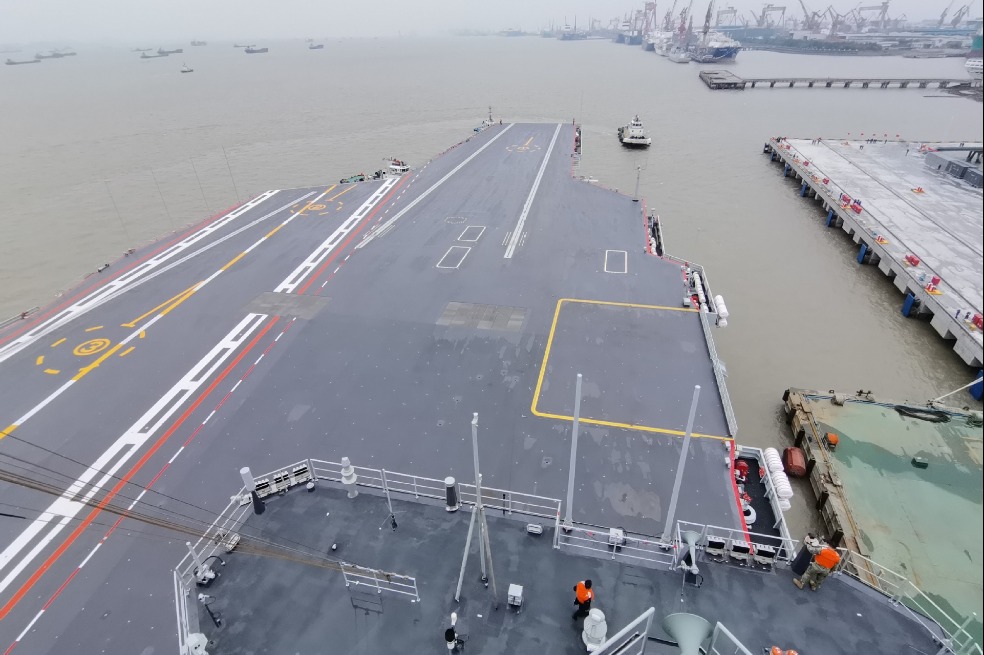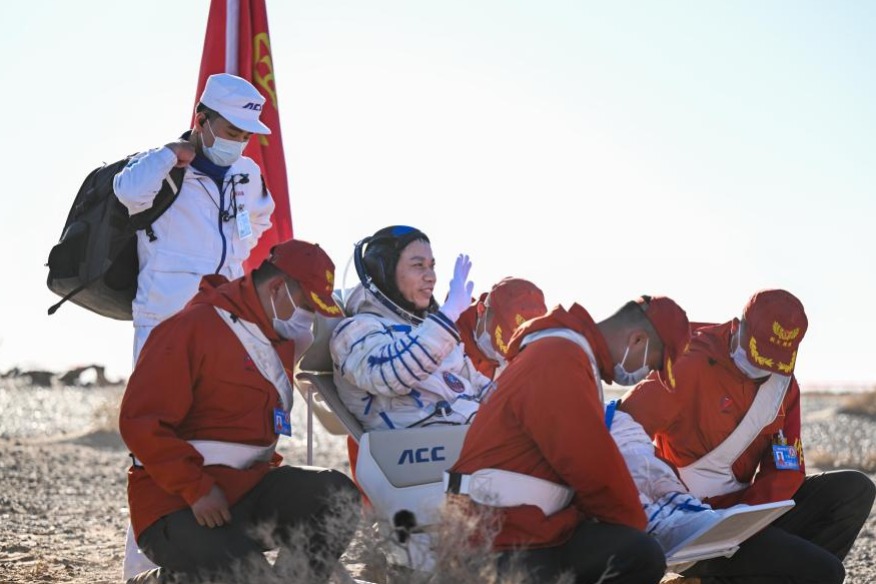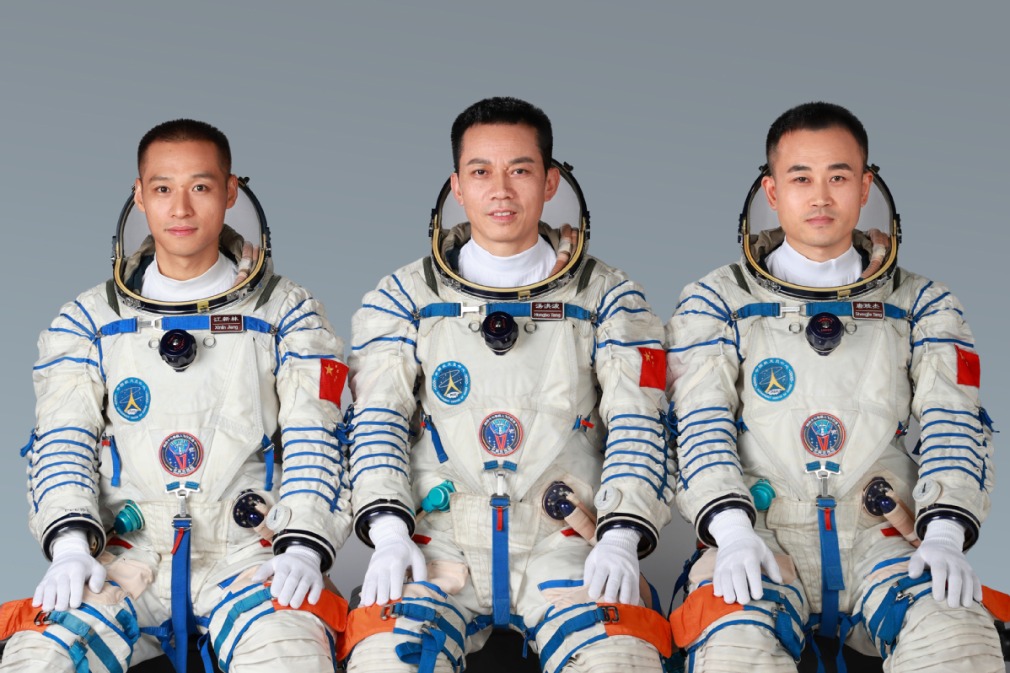G20 cooperation mechanism should be promoted in response to COVID-19
By Hu Angang & Li Zhaochen | chinadaily.com.cn | Updated: 2020-03-25 11:24

At the time of writing, the novel coronavirus pneumonia epidemic (officially called COVID-19) has spread to more than 190 countries and regions, accounting for three quarters of the total 240 countries and regions in the world. The COVID-19 pandemic has not only become the world’s largest public health crisis, but has triggered turbulence in the stock markets of several countries, and has the potential to cause financial crisis, if not economic crisis. It is highly likely that the global economy and trade will experience negative growth over the foreseeable future. Already the pandemic has brought to light serious problems in global public health and economic governance systems.
As the epidemic has evolved into a pandemic, a financial crisis is on the verge of breaking out. On March 26, a G20 video conference will be held to promote a coordinated response to the COVID-19 pandemic and its human and economic implications. This suggestion coincides with China’s overall approach to the epidemic and the main measures it has adopted, i.e. taking steps to control and contain the epidemic situation while ensuring a limited impact on society and the economy. Therefore, China should promptly and publicly support the Saudi G20 presidency by preparing “China's Program” after discussion and negotiation with Saudi Arabia.
The G20, established in response to a series of global economic crises, acts as a forum for global economic governance, and as a stabilizer and power engine for global economic growth. The first informal dialogue among finance ministers of G20 countries was convened in 1999 after the Asian Financial Crisis. Discussion focused on international economic and monetary policies pertaining to the promotion of international financial stability.
The inaugural G20 leaders' summit held in Washington in November 2008 was the first time G20 countries joined together to address the international financial crisis. Representatives deliberated the causes of the 2008 financial crisis, and assessed the progress made by the international community in responding to it. They also discussed measures to promote global economic development, strengthen regulatory standards in the international financial sector, and enhance the global financial system. With the great support from the G20 governance mechanism, global economic growth experienced a V-shaped curve: after falling from 4.3 percent in 2007, to 1.9 percent in 2008, to negative GDP growth in 2009 (-1.7 percent), in 2010 growth rose quickly to 4.3 percent. Similarly, the world export index dropped from 147.8 in 2008 to 129.0 in 2009, and returned to 146.7 in 2010.
At present, it appears that a third international financial crisis is imminent. Possibly with a greater scope and impact than the previous two crises, it will have the potential to trigger further economic and even political crisis. If the pandemic, a naturally occurring incident, is regarded as a typical black swan event, then the impending international financial crisis is a grey rhino event. Given the complex and multifaceted causes behind the anticipated global financial crisis, the international community must respond immediately with an effective action plan. Otherwise, it is highly likely that we will be dragged into international financial crisis again, with the scope, duration and degree of damage reaching record high levels.
Therefore, we are at a critical moment in human history, calling for actions that follow a “challenge-response” model. It is high time to hold a G20 video conference.
As a great power, China shoulders important responsibilities. It should fully support the Saudi G20 presidency by proposing solutions through a concerted response to the COVID-19 pandemic. For example, coordination mechanisms should be enhanced among different countries facing a range of different situations; such measures would include those regarding border entry and exit. While sharing China’s experience, we must also promote international scientific research cooperation. In addition, we should increase China’s overseas development assistance and dispatch specialized medical teams to support severely affected developing countries. Moreover, China must support the World Health Organization in guiding the global fight against COVID-19, and contribute to building a community that recognizes a shared future for human health.
In order to moderate the negative impact on global economy and trade, several measures should be taken. First of all, policy should be designed to actively expand China’s domestic demand; this is particularly important given that China is the world’s largest economy in PPP terms, has the second-largest domestic consumer market, and accounts for the majority of all world imports and exports. Meanwhile, an economic stimulus plan is needed to boost the infrastructure investment and satisfy the huge demand of 1.4 billion Chinese people.
On the premise of effective prevention and control of the epidemic situation, China should facilitate business communications; restore global supply chains, industrial chains and value chains; and further reduce import tariff rates. To help the countries that are most vulnerable to crisis, China shall take the lead in recommending that the G20 countries postpone or relieve the debts of the least developed countries during the epidemic period, and lower tariffs on exports from developing countries. In addition, China recommends that international institutions such as the International Monetary Fund, the World Bank, and the Asian Infrastructure Investment Bank deliver loans and timely assistance to countries severely affected by the outbreak.
In short, in addressing simultaneously the unprecedented multiple challenges presented by COVID-19, China should assume the important responsibilities appropriate to its position as a great accountable power. It needs to play a key role at critical moments. Already it has put forward important ideas (building a community of shared future for human health), demonstrated impressive efficiency (creating a window of opportunity as WHO said), and provided prompt assistance (a donation to the World Health Organization of $20 million). As UN Secretary-General António Guterres said, China is contributing to all mankind.
Hu Angang is the dean of the Institute of Contemporary China Studies at Tsinghua University. Li Zhaochen, Phd candidate of school of Public Policy and Management, Tsinghua University.
























